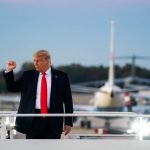The rise of certain powers within the United Kingdom has prompted concern among citizens and leaders alike regarding political governance and freedom. Former Prime Minister Liz Truss has highlighted the struggle for free speech, citing a growing alliance between the political elite and specific media outlets that appear to target dissent rather than foster open dialogue. This shift raises questions about the moral fabric of governance—what happens when the state’s institutions, designed to protect the rights of the people, become instruments used against them?
Truss pointed out that the left has penetrated deeply into British institutions, leading to a situation where political parties, civil services, and media can collectively stifle meaningful debate. The implications of such an arrangement are troubling. When a government seems more intent on silencing free speech than addressing pressing issues—such as illegal immigration and economic downturns—what does that signal about its relationship with the populace? The fear grows that the very fabric of democracy is being unraveled in favor of a narrative crafted by elites, leaving every concerned citizen feeling increasingly powerless.
An example comes from the situation surrounding Elon Musk’s platform, X (formerly known as Twitter). Truss observed alarming efforts to control online discourse, with organizations scheming to “kill” platforms allowing unfettered discussion. This manipulation mirrors similar patterns on both sides of the Atlantic, where political narratives choke out the voices of the people. History has taught us that when the public is silenced, frustration mounts—citizens become alienated from the decisions that dictate their lives. The aftermath of this alienation can be seen in political movements that sweep unexpectedly across the landscape, leaving traditional parties scrambling to understand the discontent simmering below the surface.
Perhaps the most striking concern that emerges from these discussions is the nature of accountability. Once viewed as bastions of justice, the judiciary and bureaucratic systems have come under scrutiny for their perceived lack of responsibility toward the people they serve. When institutions operate beyond the reach of the very citizens they impact, trust erodes, and the consequences can be dire. The example of a former administration’s judicial policies leading to increasingly absurd outcomes—such as light sentences for heinous crimes juxtaposed with severe penalties for petty transgressions—is a grim reminder of the dangers of a disconnected ruling class.
Yet, amid these struggles, a flicker of hope exists in the realization that the populace is awakening to their situation. The dwindling support for traditional political frameworks signals a readiness for change driven by a collective desire for transparency and accountability. Citizens are beginning to recognize that their voices matter and are increasingly unwilling to be drowned out by elite narratives. The challenge lies in channeling this awareness into action that reclaims the political process for the people rather than allowing it to remain a playground for those detached from the lived experiences of the general public.
As we reflect on these developments, a critical question emerges: How can citizens ensure that their government serves them rather than the elite few? The answer may illuminate a pathway toward revitalizing democracy—a return to the principle that government is, by its very nature, a service to the people. If citizens can unite and demand a system that upholds their rights to free speech, transparency, and justice, they may steer their nation back toward a healthier, more equitable political landscape. The fate of free societies may very well hinge on this ongoing battle for truth, accountability, and fundamental rights.




